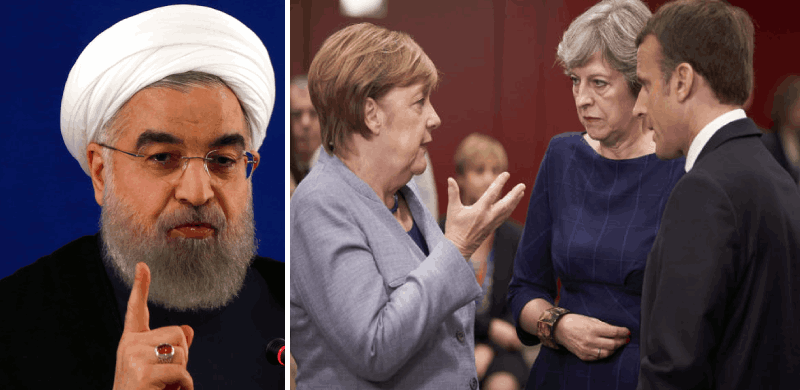
A year after the United States (US) abandoned the 2015 international nuclear deal, Iran has scrapped two commitments to it citing US sanctions.
President Hassan Rouhani said that he would keep the enriched uranium stocks in the country instead of selling them abroad. According to the deal, Iran is required to sell the excess abroad.
Rouhani also threatened to produce more-highly-enriched uranium in 60 days if the signatories, including France, Germany, Russia, China and the United Kingdom (UK), don't act to protect Iran from US and its sanctions.
The European powers have, however, dismissed Iran's 'threats' and 'ultimatums' and are committed to the nuclear deal. The UK, France, Germany and Russia have also raised 'concerns' over Iran's latest move.
"We strongly urge Iran to continue to implement its commitments under the JCPOA in full as it has done until now and to refrain from any escalatory steps," a joint statement said.
"We reject any ultimatums and we will assess Iran's compliance on the basis of Iran's performance regarding its nuclear-related commitments under the JCPOA and the NPT (Treaty on the Non-Proliferation of Nuclear Weapons)."
In 2015, Iran signed the accord with the European powers, China and the US, agreeing to decrease sensitive nuclear activities and allowing international inspectors. This was done to avoid the crippling economic sanctions on the country.
However, the US withdrew from the accord last year and placed fresh sanctions on Iran.
US President Donald Trump's Special Assistant and Senior Director for Weapons of Mass Destruction, Tim Morrison, said that Iran's move was "nothing less than nuclear blackmail of Europe".
President Hassan Rouhani said that he would keep the enriched uranium stocks in the country instead of selling them abroad. According to the deal, Iran is required to sell the excess abroad.
Rouhani also threatened to produce more-highly-enriched uranium in 60 days if the signatories, including France, Germany, Russia, China and the United Kingdom (UK), don't act to protect Iran from US and its sanctions.
The European powers have, however, dismissed Iran's 'threats' and 'ultimatums' and are committed to the nuclear deal. The UK, France, Germany and Russia have also raised 'concerns' over Iran's latest move.
"We strongly urge Iran to continue to implement its commitments under the JCPOA in full as it has done until now and to refrain from any escalatory steps," a joint statement said.
"We reject any ultimatums and we will assess Iran's compliance on the basis of Iran's performance regarding its nuclear-related commitments under the JCPOA and the NPT (Treaty on the Non-Proliferation of Nuclear Weapons)."
In 2015, Iran signed the accord with the European powers, China and the US, agreeing to decrease sensitive nuclear activities and allowing international inspectors. This was done to avoid the crippling economic sanctions on the country.
However, the US withdrew from the accord last year and placed fresh sanctions on Iran.
US President Donald Trump's Special Assistant and Senior Director for Weapons of Mass Destruction, Tim Morrison, said that Iran's move was "nothing less than nuclear blackmail of Europe".
